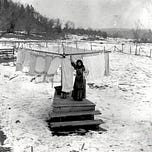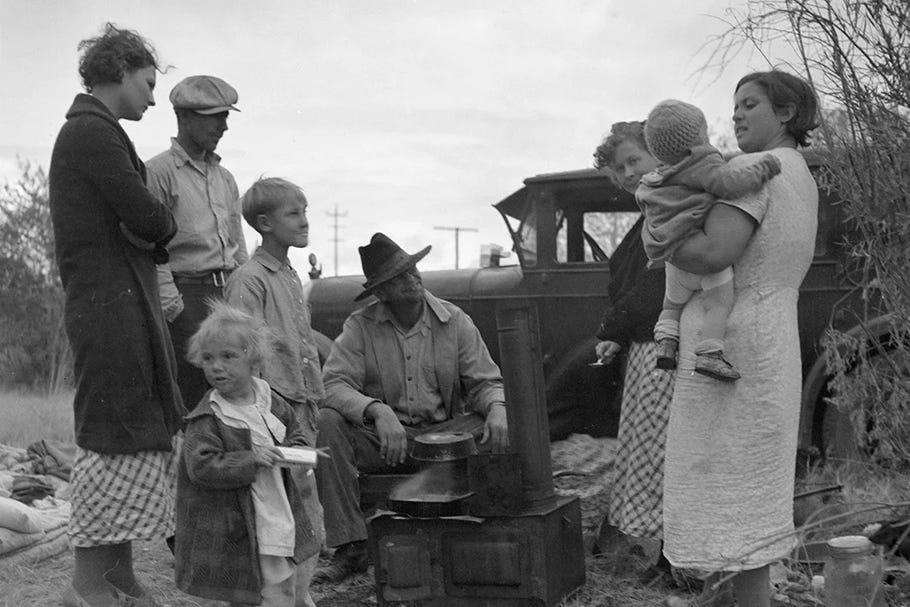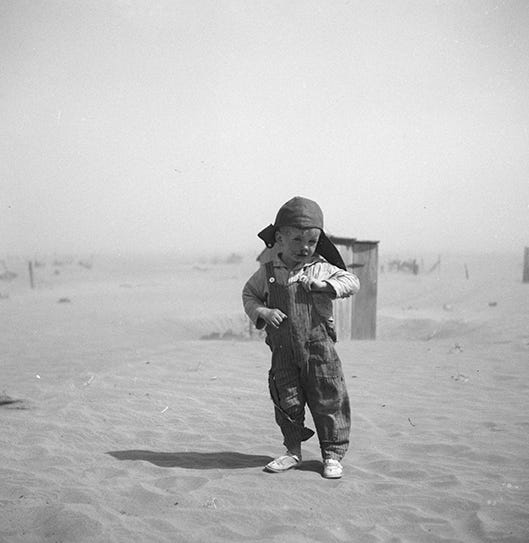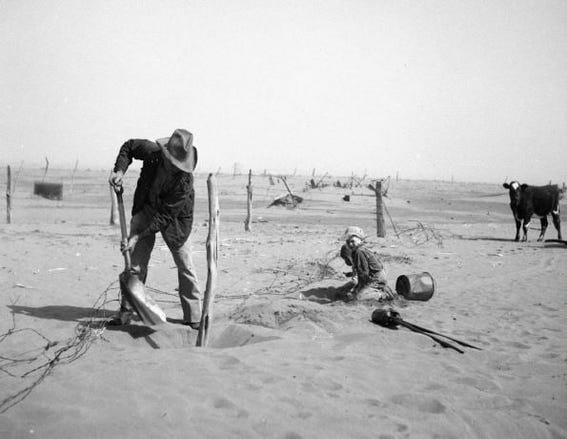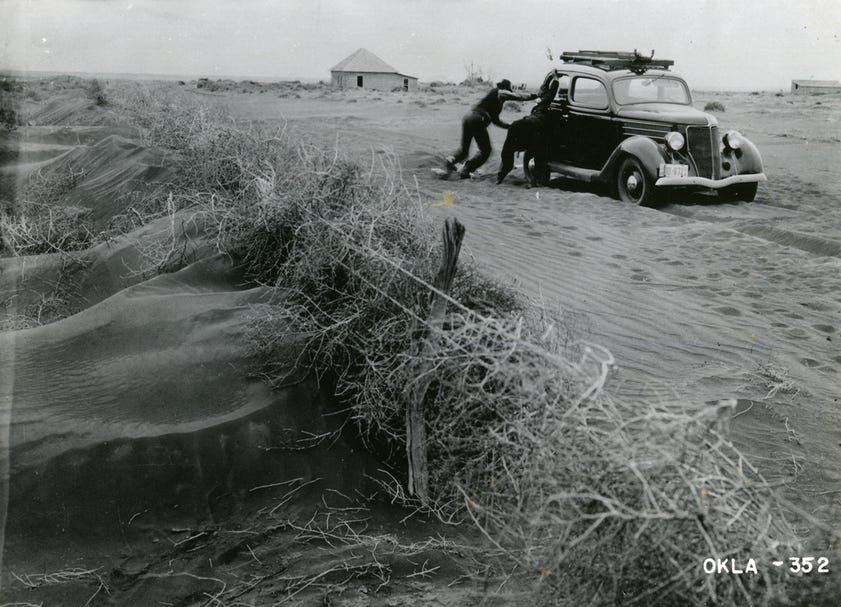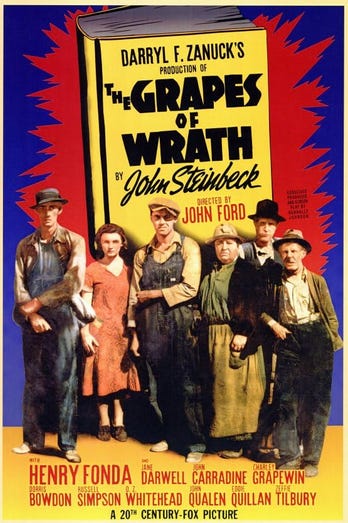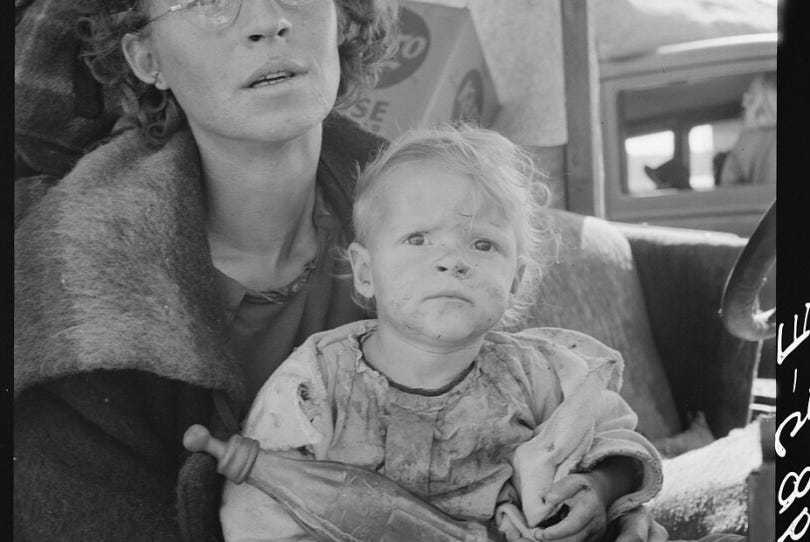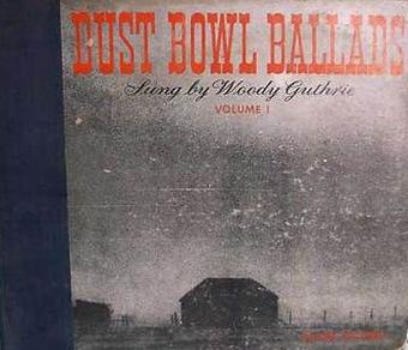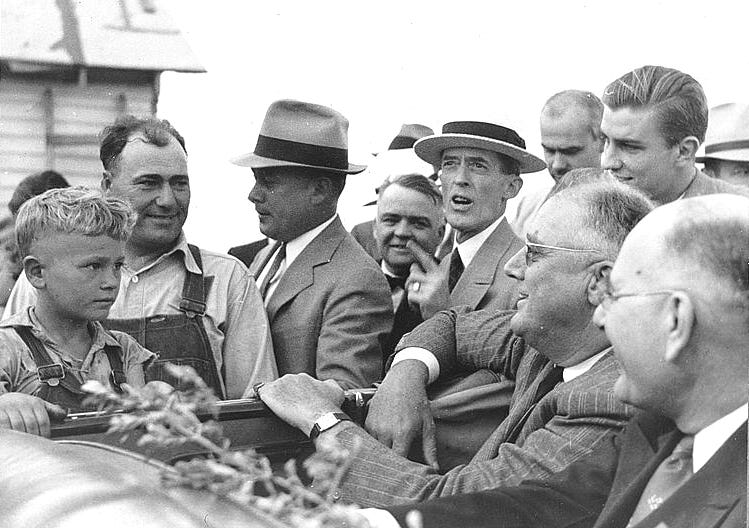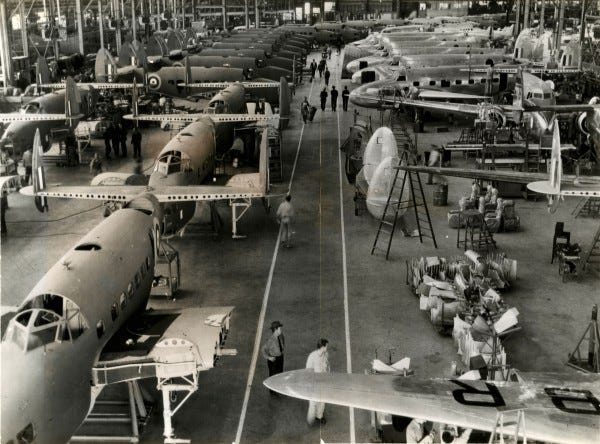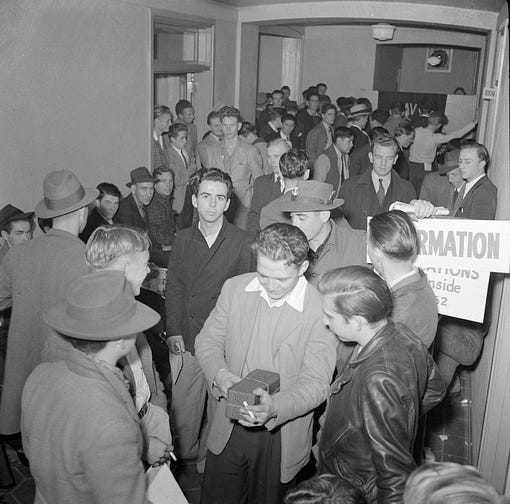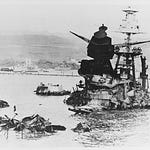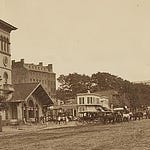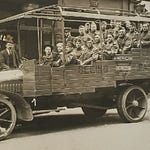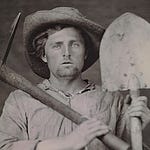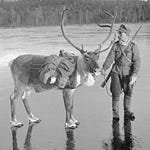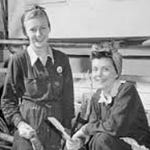Okies.
About 440,000 people in Oklahoma packed up and left the state during the 1930s.
Most of them went to California.
But Oklahoma’s farmers had been coping with tough conditions long before the Dust Bowl hit in 1934.
The decade before, agricultural prices had plummeted due to over-production.
Then drought came in 1930, crippling thousands of farms.
At the time, farmers worked their land using techniques which had been adopted a hundred years before, during the initial settlement of the Great Plains.
But these methods had rendered their land incapable of retaining its fertile topsoil.
So, it blew away.
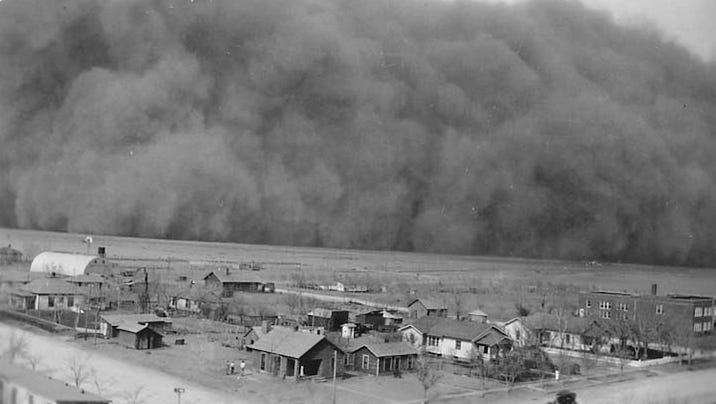
Crops died and farm animals starved.
Broke farmers lost their land to foreclosure.
And farmers who rented their land had little incentive to stay and work marginal land for minimal returns.
So, they left, too.
US Route 66 was the road they took west.
It took about three days to reach California.
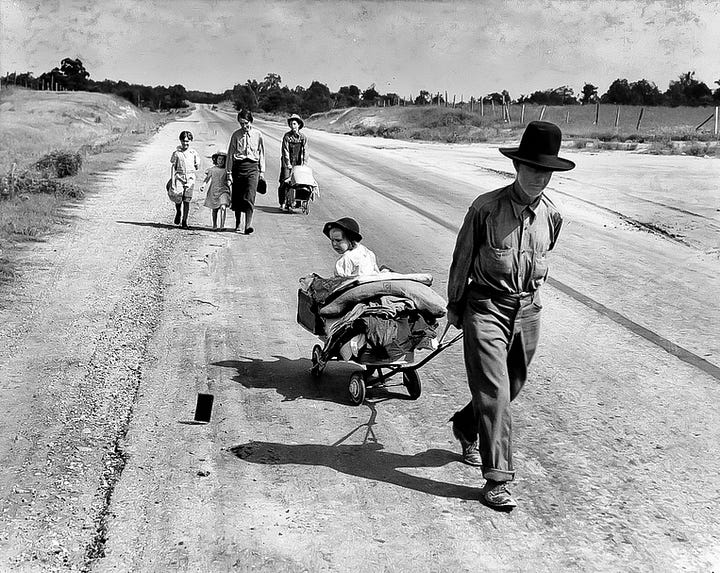
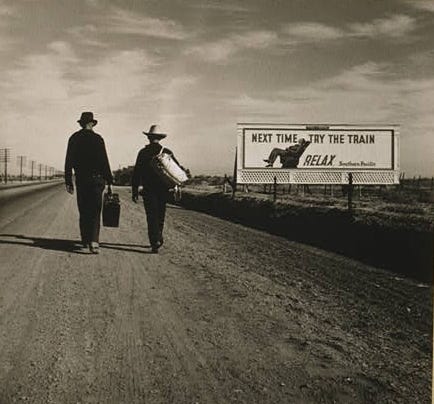
When the migrants reached Barstow, they had to decide whether to continue on Route 66 into Los Angeles or turn north toward California’s agricultural central valley.
Tens of thousands turned north.
They hoped to find their own piece of land there.
But it didn’t work out.
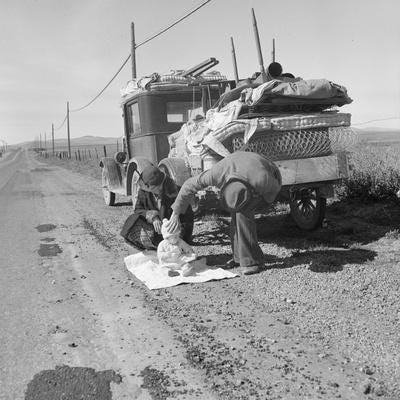
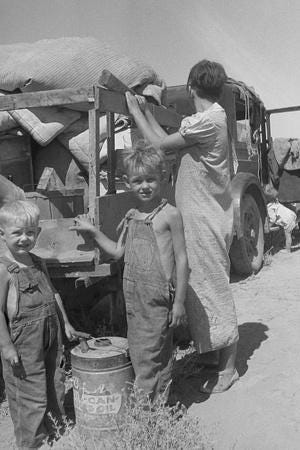
Large, established farms dominated California’s central valley.
And the best most migrants could do was find work harvesting cotton, fruit and vegetables, for somewhere between 75 cents and $1.25 per day.
And out of that, these people often had to pay rent to the landowners to occupy shacks on the premises.
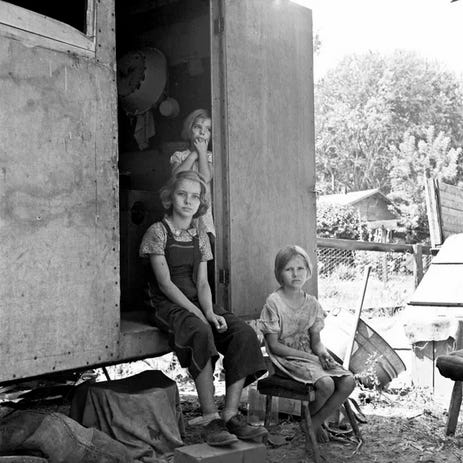
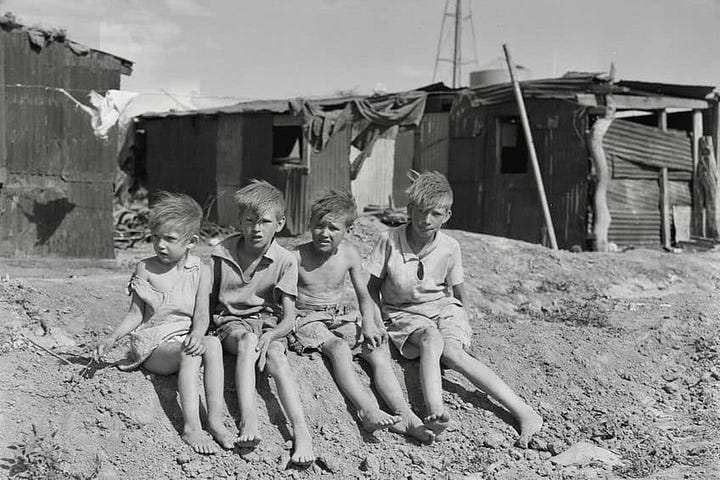
Sanitation was nonexistent in these dirt-floored shacks.
Many people died from disease — typhoid, smallpox, tuberculosis, malaria, and pneumonia.
And they were scorned because of the dirty conditions in which they lived.
To be called an “Okie” was not a compliment.
But John Steinbeck’s 1939 novel about these people helped change the public’s perception of these migrants.
From The Grapes of Wrath:
"They were hungry, and they were fierce.
And they had hoped to find a home, and they found only hatred."
Dorothea Lange’s photographs for the federal Farm Services Administration of destitute families in farm labor camps told their story in ways that words could never do.
Her photographs were printed in newspapers across the country.
And songwriter Woodie Guthrie put it all to music in 1940.
From his song Talkin’ Dust Bowl Blues:
“Down in Oklahoma, the wind blows mighty strong,
If you want to get a mama, just sing a California song.”
By the end of the 1930s, federal aid programs were beginning to make a difference for these families.
But it was California’s defense industry boom with the onset of World War II that finally made a difference.
Real jobs.
Real money.
As we’ve said a hundred times, war changes everything.
**************************
I’ll see you tomorrow.
— Brenda


